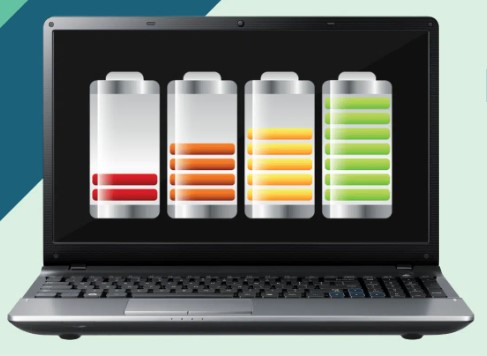In today’s digital age, laptops have become indispensable tools for both personal and professional use. However, one common issue that many users encounter is the limited lifespan of their laptop batteries. Constant charging and discharging, along with other factors, can lead to a decrease in battery capacity over time. But fear not, as we’re here to provide you with practical tips to extend the lifespan of your laptop battery and ensure optimal performance for years to come.
Understanding Battery Lifespan
Before diving into the tips, it’s essential to understand how laptop batteries work and why they degrade over time. Most modern laptops utilize lithium-ion batteries, which are known for their high energy density and rechargeable properties. However, these batteries are not immune to degradation.
Factors Affecting Battery Lifespan
Several factors contribute to the degradation of lithium-ion batteries:
- Charge Cycles: Each time you charge and discharge your laptop battery, it undergoes a cycle. Over time, the number of cycles a battery can endure decreases, leading to reduced capacity.
- Temperature: High temperatures can accelerate battery degradation, while extremely low temperatures can affect performance.
- Overcharging: Leaving your laptop plugged in continuously, even when fully charged, can stress the battery and shorten its lifespan.
- Age: As batteries age, their capacity naturally diminishes, regardless of usage patterns.
Practical Tips to Extend Battery Life
Now that we have a basic understanding of battery lifespan, let’s delve into actionable strategies to maximize the longevity of your laptop battery:
1. Optimize Power Settings
Adjusting your laptop’s power settings can significantly impact battery life. Consider lowering the screen brightness, setting shorter idle times for sleep mode, and optimizing power plans to conserve energy.
2. Unplug When Fully Charged
Avoid overcharging your laptop by unplugging it once the battery reaches 100%. Continuous charging can put unnecessary strain on the battery and accelerate degradation.
3. Keep Your Laptop Cool
Excessive heat is a primary enemy of lithium-ion batteries. Ensure proper ventilation for your laptop and avoid using it on soft surfaces that can obstruct airflow and trap heat.
4. Limit Background Processes
Reduce the number of unnecessary programs running in the background to minimize battery drain. Close unused applications and disable startup programs to conserve energy.
5. Use Battery Maintenance Tools
Many laptops come with built-in battery maintenance tools or software that can help optimize battery performance. Take advantage of these features to calibrate your battery and monitor its health.
6. Store at Partial Charge
If you’re storing your laptop for an extended period, it’s best to keep the battery at around 50% charge. Avoid storing it fully charged or fully discharged, as both extremes can be detrimental to battery health.
7. Update Your Firmware
Regularly check for firmware updates for your laptop and battery. Manufacturers often release updates to improve battery efficiency and address potential issues.
8. Avoid Extreme Temperatures
Try to keep your laptop within a comfortable temperature range, ideally between 50°F to 95°F (10°C to 35°C). Avoid exposing it to extreme heat or cold, as this can degrade battery performance.
Conclusion
By implementing these practical tips, you can significantly extend the lifespan of your laptop battery and ensure optimal performance for years to come. Remember to optimize power settings, unplug when fully charged, keep your laptop cool, limit background processes, use battery maintenance tools, store at partial charge, update your firmware, and avoid extreme temperatures. With proper care and maintenance, you can enjoy uninterrupted productivity without worrying about battery issues.
